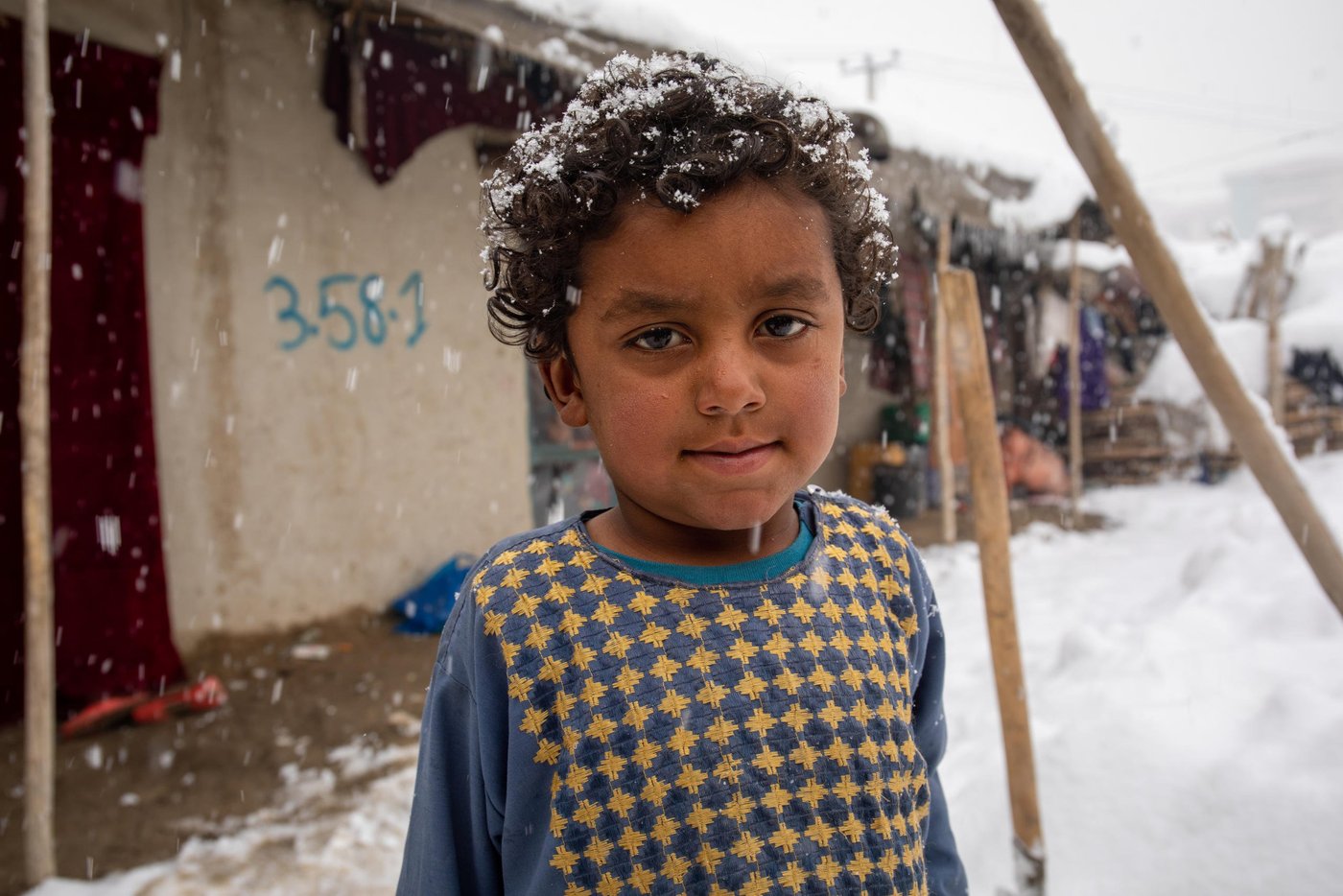We meet four-year-old Hasibullah in the early morning hours after a biting cold night of heavy snowfall with sub-zero temperatures reaching -16 C. A white blanket of snow has settled over the tents of Hiwadwal, an informal settlement on the outskirts of the capital, Kabul. It is just one of many such settlements in Kabul.
Last year, NRC built 154 new houses and upgraded the homes of 330 other internally displaced families in and around the capital, Kabul. Some of these houses are in the settlement of Hiwadwal.
Most of the families living here have been displaced by conflict in the war-torn country. Some are new arrivals, while others have lived like this for years. Some lived as refugees in neighbouring Pakistan before returning home, only to be forced to flee their homes once more.
Two-thirds of all of those displaced from their home provinces have sought protection in the regional capitals, such as Kabul, Nangarhar, Kandahar, Balkh and Herat.
"I hadn't expected there would be snow when I washed his jacket. It's not yet dry. That's the only jacket he's got. Now I'm afraid he's going to get sick. He wants to be out and play in the snow with other kids, but I'm afraid he's going to get sick," says Hasibullah's mother.
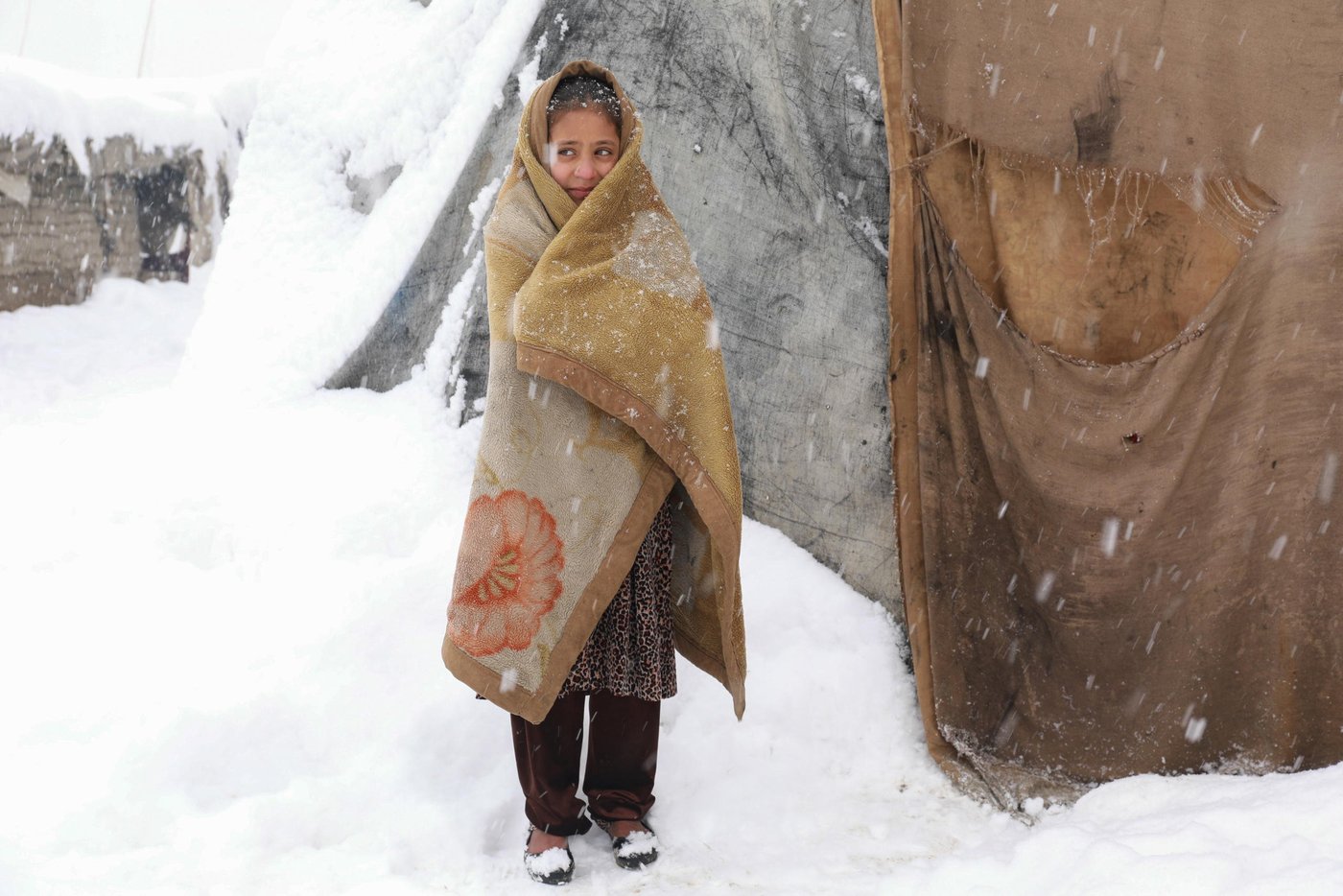
In the same neighbourhood we meet eleven-year-old Raqia. She stands outside her family’s home, wrapped in a blanket. Underneath, all she has on are thin summer clothes, with nothing on her feet but a pair of simple plastic sandals – and no socks.
“These are the only clothes and shoes I have,” she says, pulling the blanket tightly around her.
More than 1.2 million internally displaced people all over Afghanistan live in tent and shanty towns, so-called informal settlements. More than half of them are children under the age of 18.
Her modest home consists only of plastic, tarpaulin, rugs and clay. “We have a simple stove, but we have no fuel. We burn cardboard and plastic that we collected during the summer, but it is not enough to keep us warm. We usually fire up the stove once a day, but when it’s cold like now, we often light the stove twice a day.”
As soon as the heat from the stove dies out, it gets freezing cold. “It is very cold at night and I wake up early because I’m so cold. My feet are like ice, and sometimes I lose the feeling in my toes,” she says, looking down at her frozen feet.
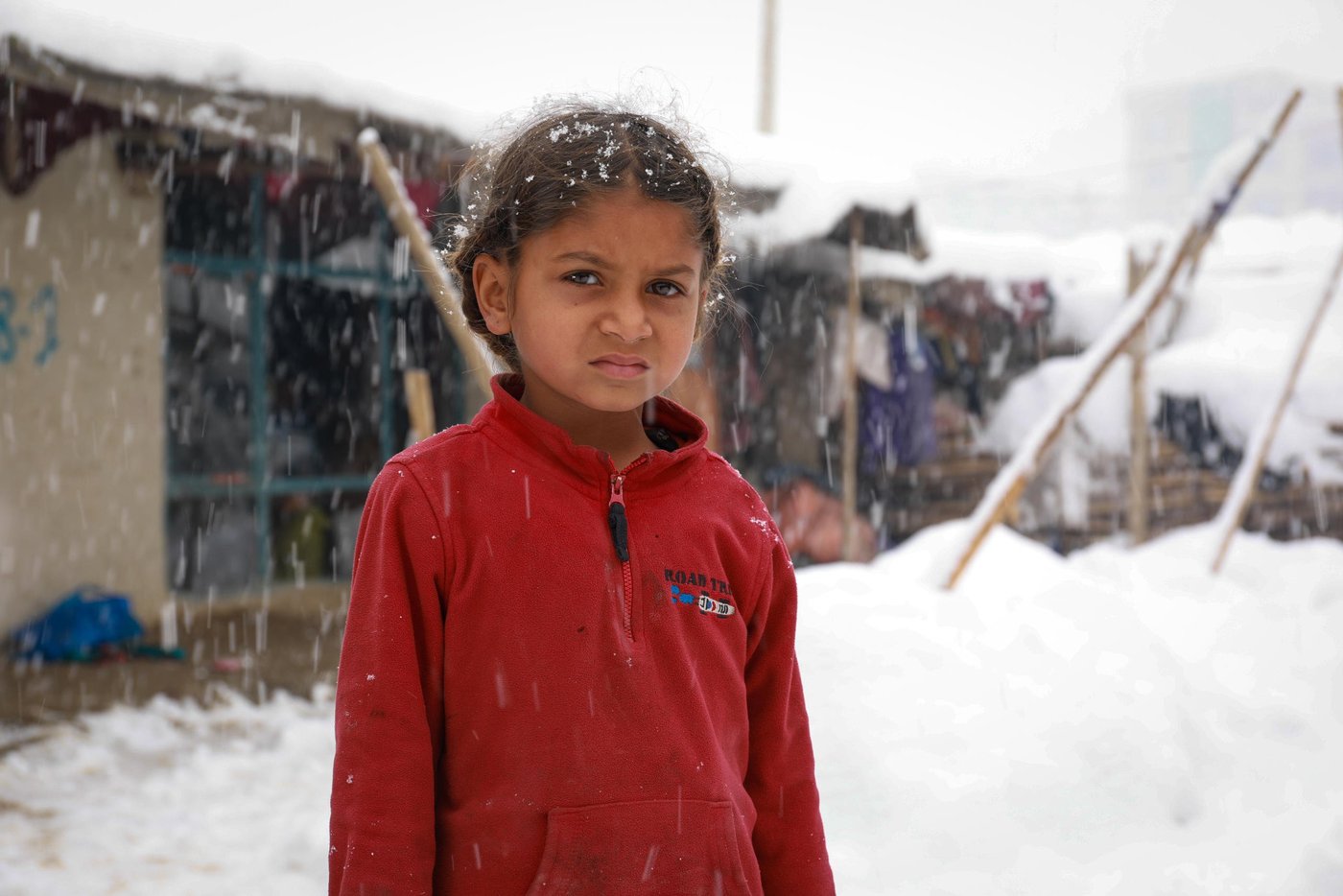
We also meet nine-year-old Salma outside the family's small house. She's wearing a thin red sweater. We're asking way she isn't in school today.
"No, I'm not going to school," she answers.
She insted spends her days collect plastic and cardboard cartons, which the family uses as fuel for their stove.
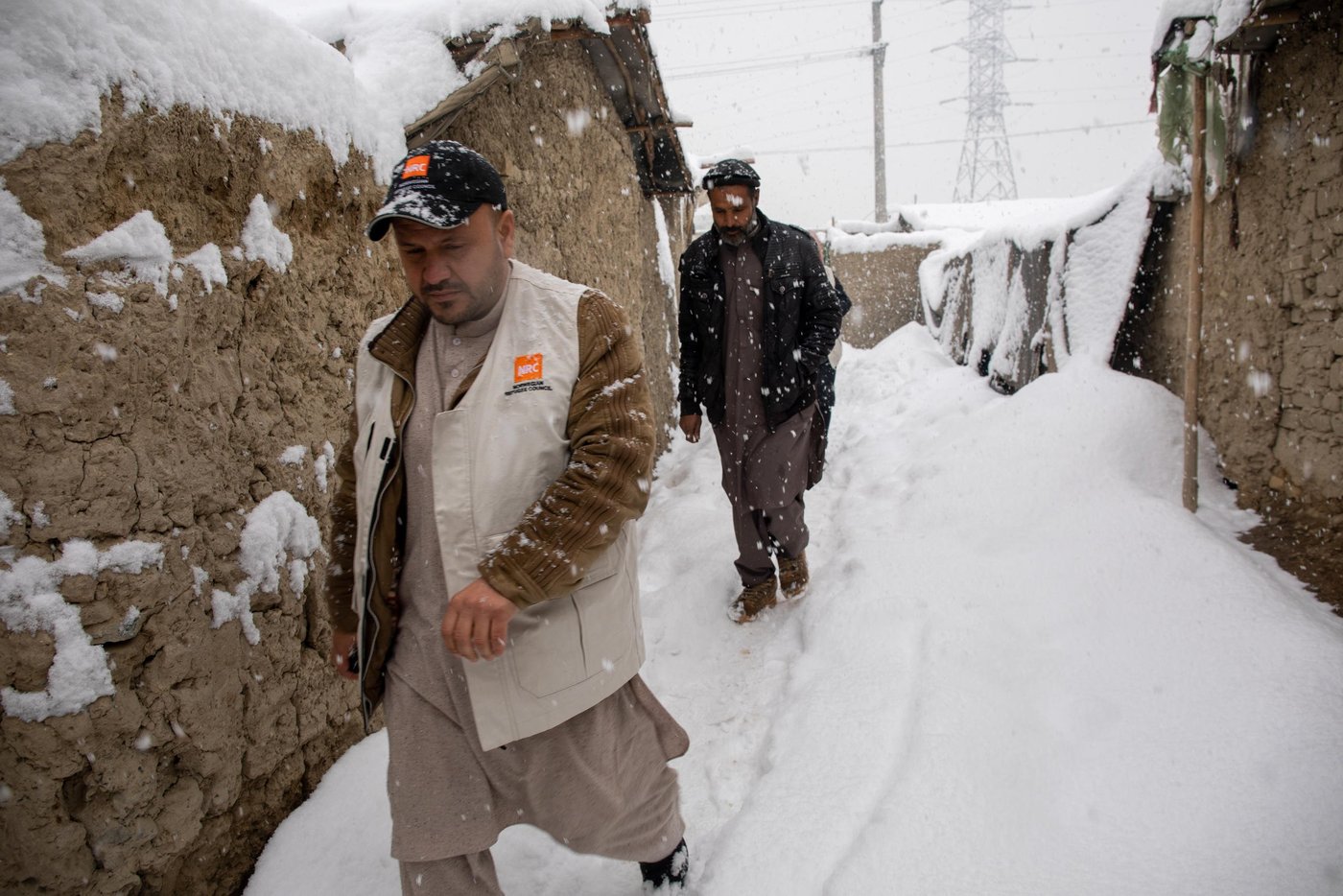
After heavy snowfall and temperatures down to nearly -20 C, it has been reported that many of the tents and houses in these settlements have collapsed. NRC sent out a team to gain an overview of the damage and the need for help.
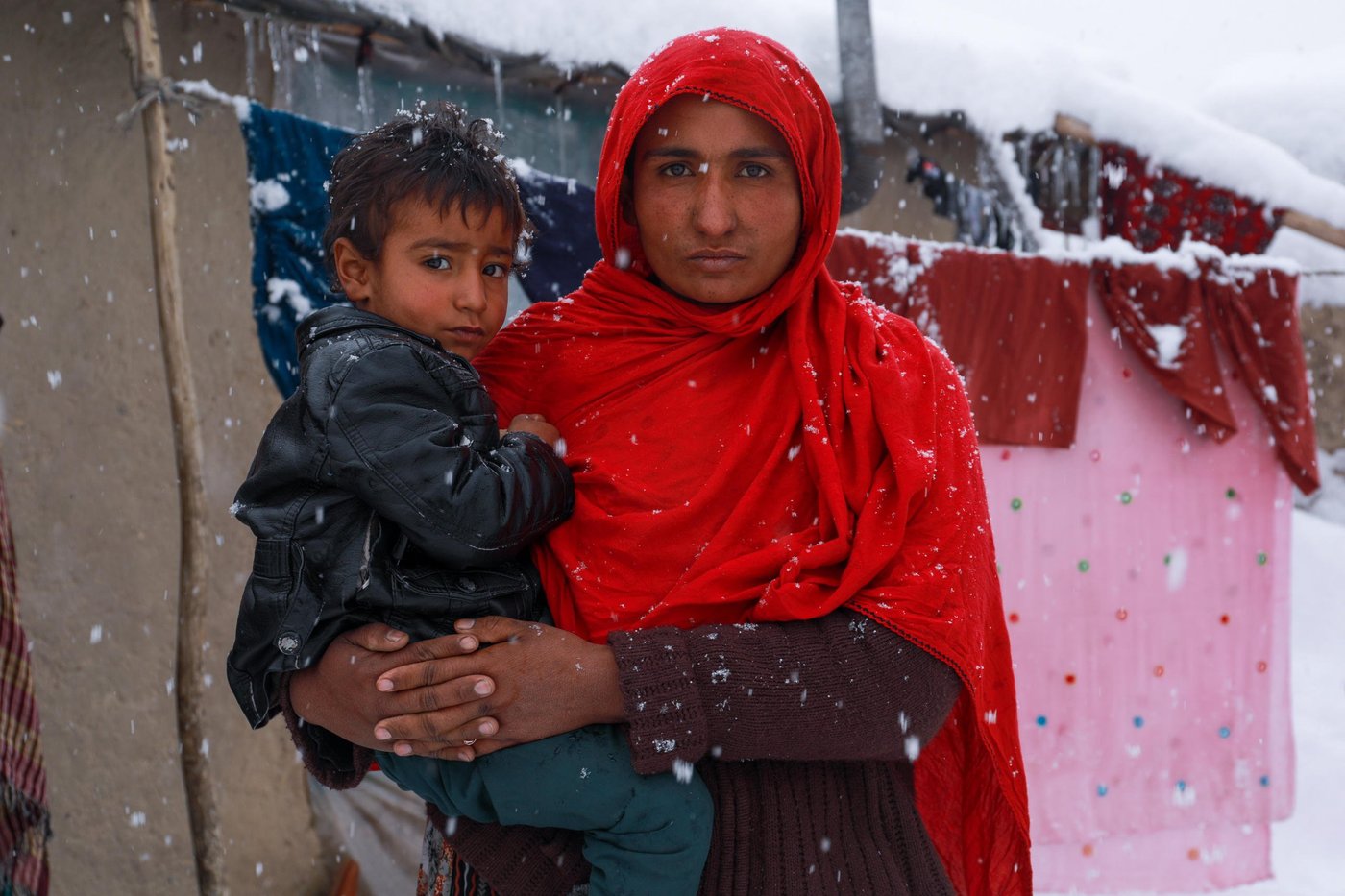
Soon, the team meets Shahnaz, 34, a widow and mother of three. “I was sleeping with my three children when the roof suddenly collapsed on top of us. Fortunately, no one was hurt. I called for help and shortly afterwards our neighbour showed up to help us,” she says.
“Thank God we are still alive, and that fortunately we have good neighbours. They have welcomed us, even though they don’t have much room. Now the children and I live with three other families in a small two-room house.”
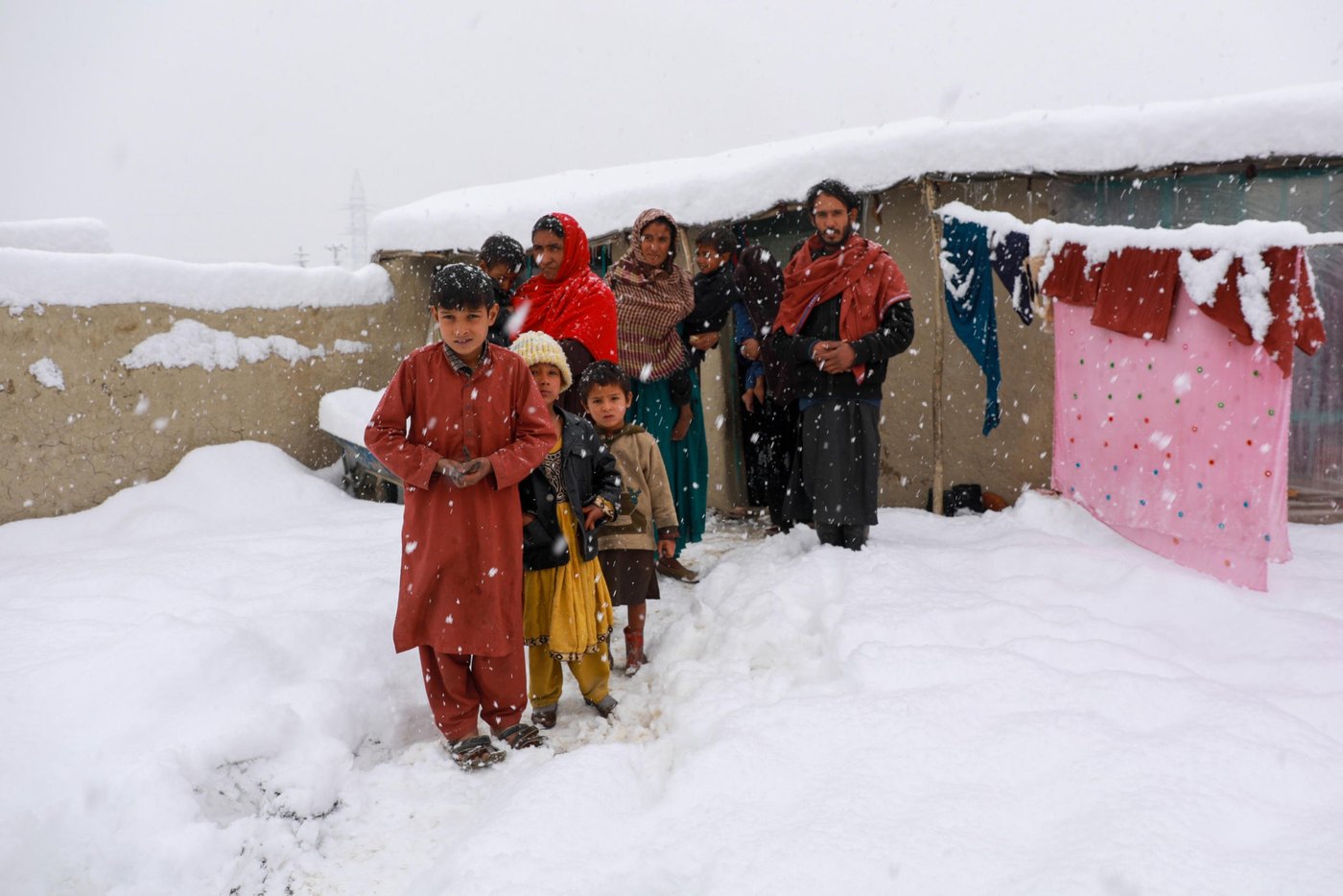
Shahnaz begs on the street in Kabul to provide food for herself and her three children. Now, she has had another challenge to overcome.
“The two biggest challenges we were facing were food and cold. Now I can add the lack of roof over our heads to my list of worries.”
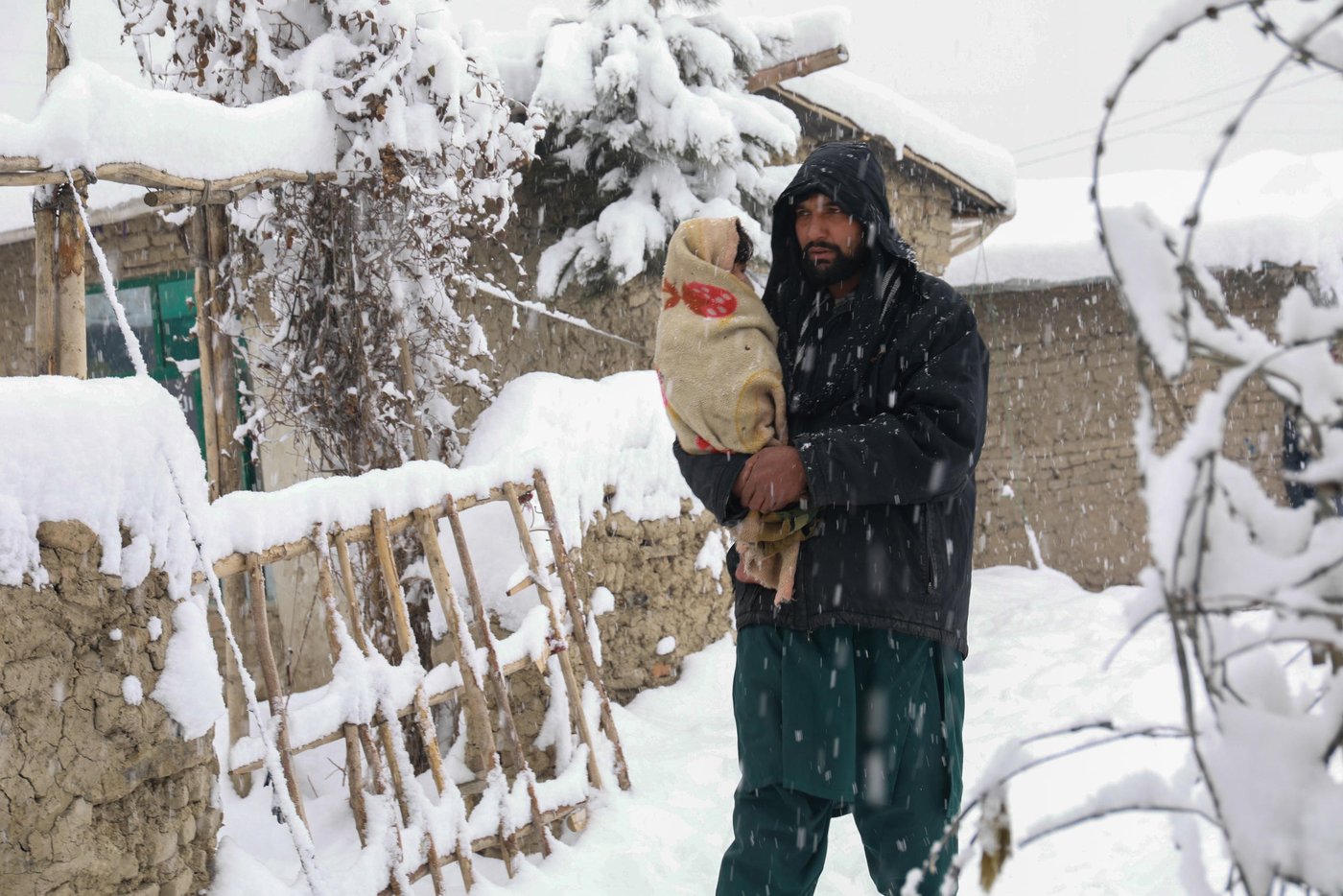
We also meet Mirwais, 42. He is on his way to the doctor with his one-and-a-half-year-old son, Ramin. He has had a fever, headaches and abdominal pain for the past three days.
“I had hoped that the pain would subside and that I wouldn’t have to take him to the doctor. I have no money for medicine and this is the second time this winter that I have had to bring one of our children to the doctor."
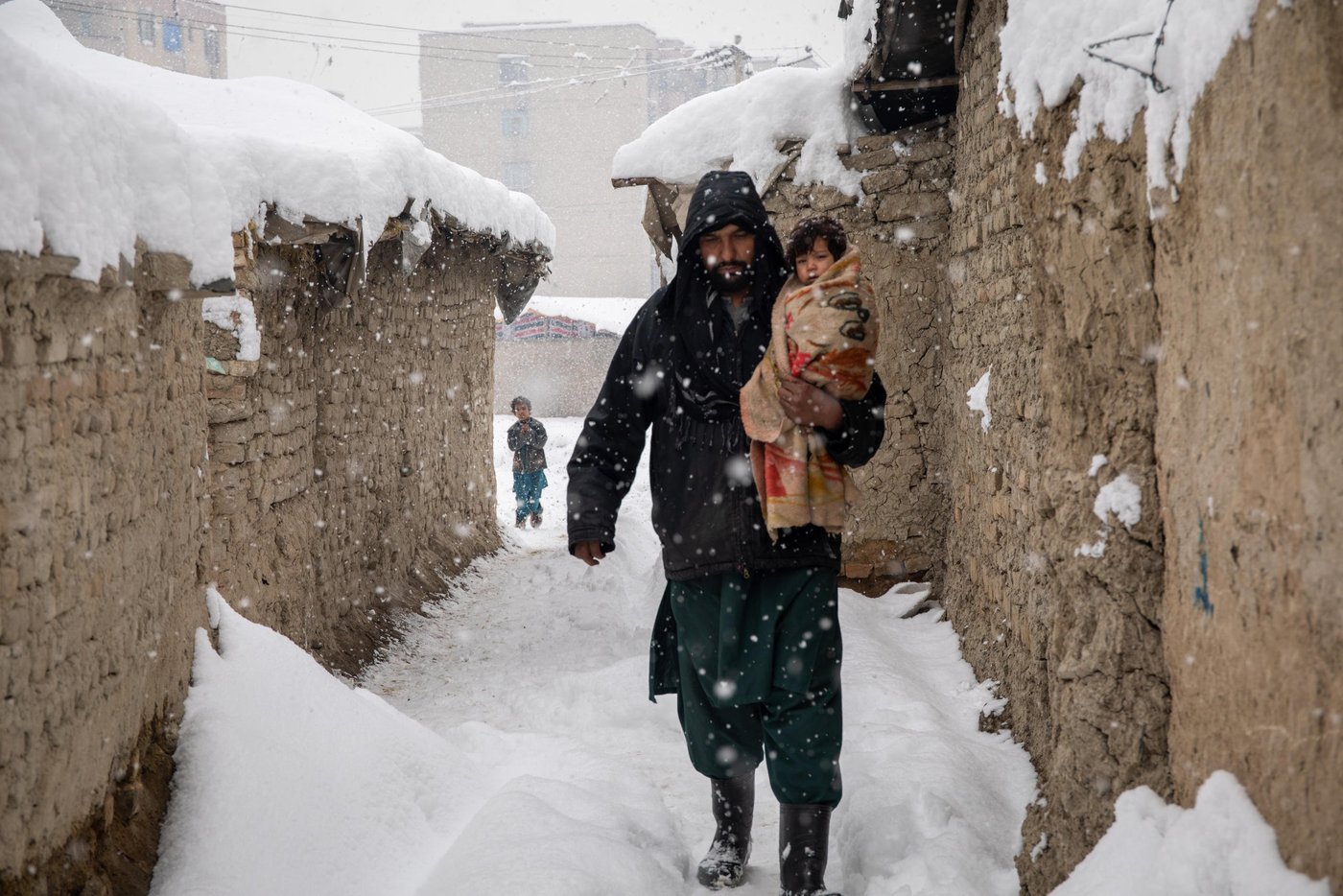
In total, 30 per cent of Afghans lack access to the most basic health services. And those who live in the hardest-hit areas, where humanitarian aid organisations struggle to gain access, are the ones who suffer the most.
Mirwais is worried about his children. “We can’t afford fuel or firewood to heat our house or cook. The only fuel we have is plastic and cardboard boxes. This is very toxic and makes the children sick,” he says, as he hurries on through the snow drifts to the doctor.
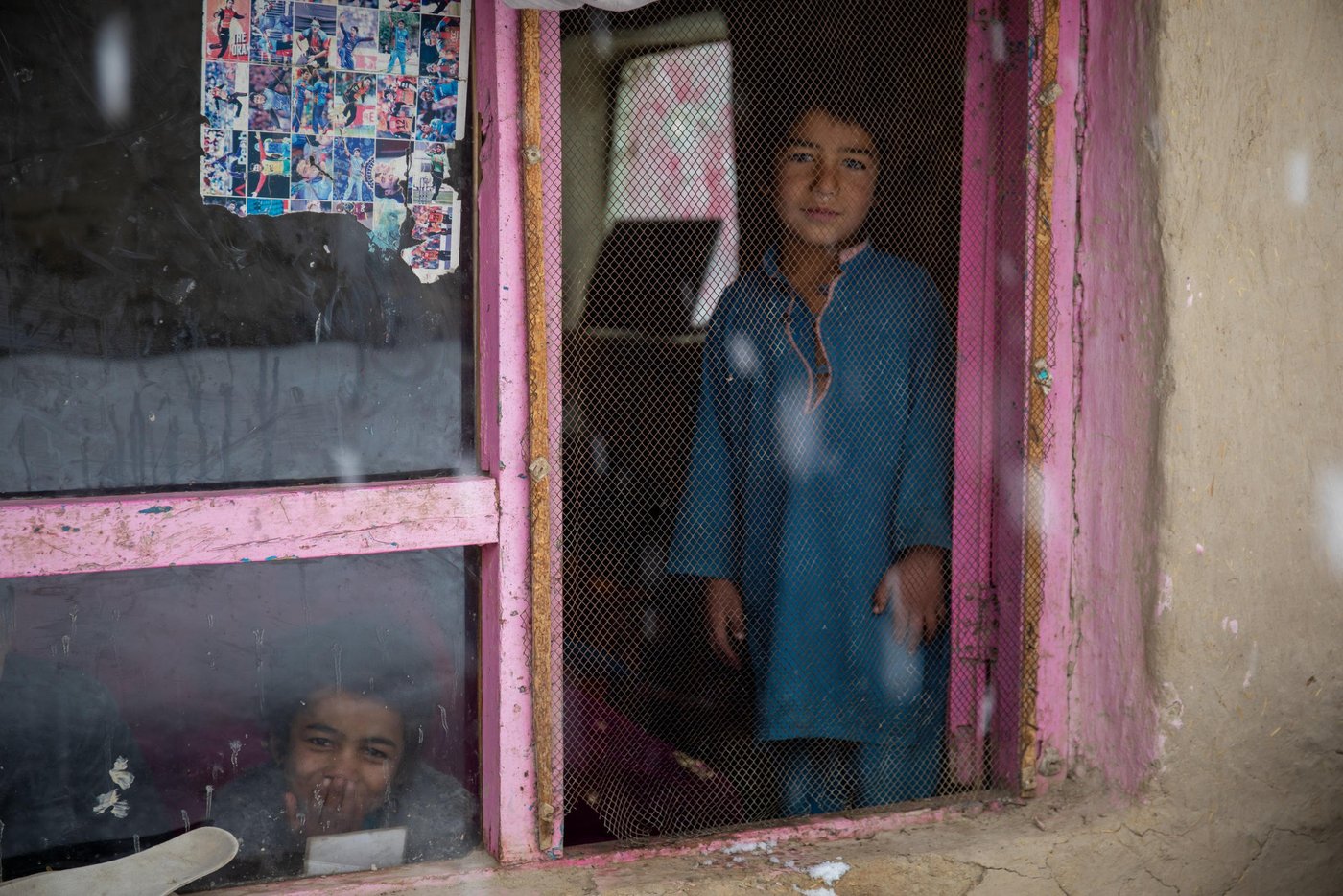
In the same neighbourhood, we meet Shawan, 6. Last winter he also lived in a home made of plastic, rugs and clay. But last year, NRC built 154 new houses and upgraded the homes of 330 other internally displaced families in and around the capital, Kabul. Shawan’swas one of those families.
“Now we don’t have to freeze and can keep warm indoors,” he says, waving to us through the window of the new house.
After the most recent snowfall, NRC’s team can see that many of these houses now accommodate more than just one family.
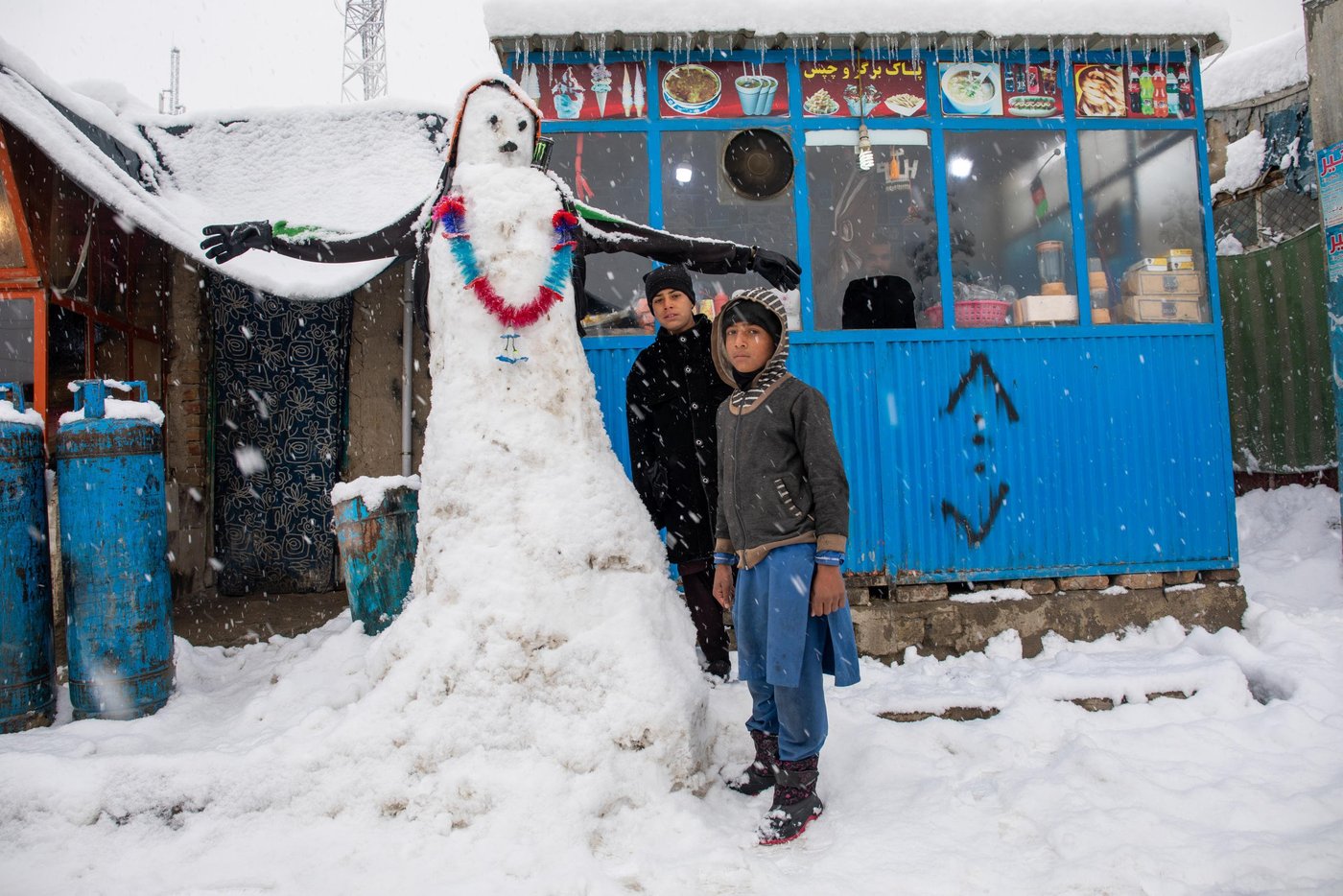
Although the children in Kabul’s settlements have many concerns, they are like most children. Despite the fact that cold and snow creates further suffering and distress, they find joy in everyday life. Outside a kiosk, we meet two boys who have made a snowman. For a moment, having fun in the snow is all that matters.


